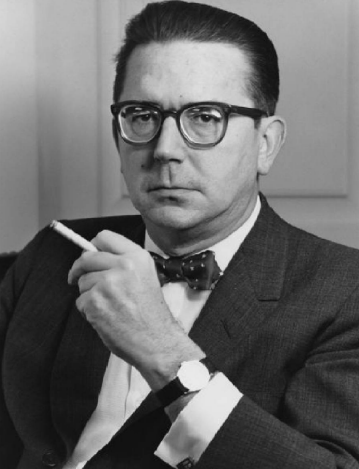“TV has altered drastically the nature of our political campaigns, conventions, constituents, candidates, and costs.”
- Senator John F. Kennedy, 1959
”“I Like Ike” - The First Television Ads in Presidential Politics
In 1952, Dwight Eisenhower accepted advice from
television advertising pioneer Rosser Reeves to
produce 30 second television
ads. Democrat Adlai
Stevenson disdained the
superficiality of 30 second
spots and bought 30 minute
blocs late in the evening
(when rates were cheaper
and fewer people watched).
Eisenhower won.

- Matvy
The advent of television after World War II forever changed campaigns and public policy.
Witnessing Events from the Living Room
Television illuminated some dark corners of
American life. Reporting from Vietnam, America’s
first “living room war,” eroded support for continued
fighting. Television news segments showing the
beating of peaceful marchers in Selma, Alabama
increased support for Civil Rights legislation,
including the Voting Rights Act of 1965.
- Library of Congress
Vietnam War, Operation Hue City, 1967.
The Election of 1960
The election of John F. Kennedy was
a milestone for Massachusetts and
the nation. The first Catholic elected
to the Presidency, his election pointed
toward a future where religious
affiliations, ethnicity, and race were
not automatic disqualifiers. He was
also the first president to fully master
the new medium of television.
Richard Nixon
That’s Debatable
Kennedy and Nixon had four
televised debates. The first made the
deepest impression. John Kennedy
dressed in a dark suit and appeared
relaxed and confident. Nixon’s grey
suit blended into the background on
black and white television. Exhausted
from campaigning, he appeared
haggard. Apparently glancing at a
wall clock from time to time, Nixon’s
eyes seemed “shifty” to some. Before
each debate Kennedy arrived early
to check on lighting and studio
temperature. While not a single
factor explanation, Kennedy’s debate
performance was critical.
Twenty-Sixth Amendment
In 1971, the Twenty-Sixth Amendment lowered the voting
age to 18 in response to the Vietnam Era draft. It was
argued that those who were old enough to fight were old
enough to vote.
- Library of Congress
